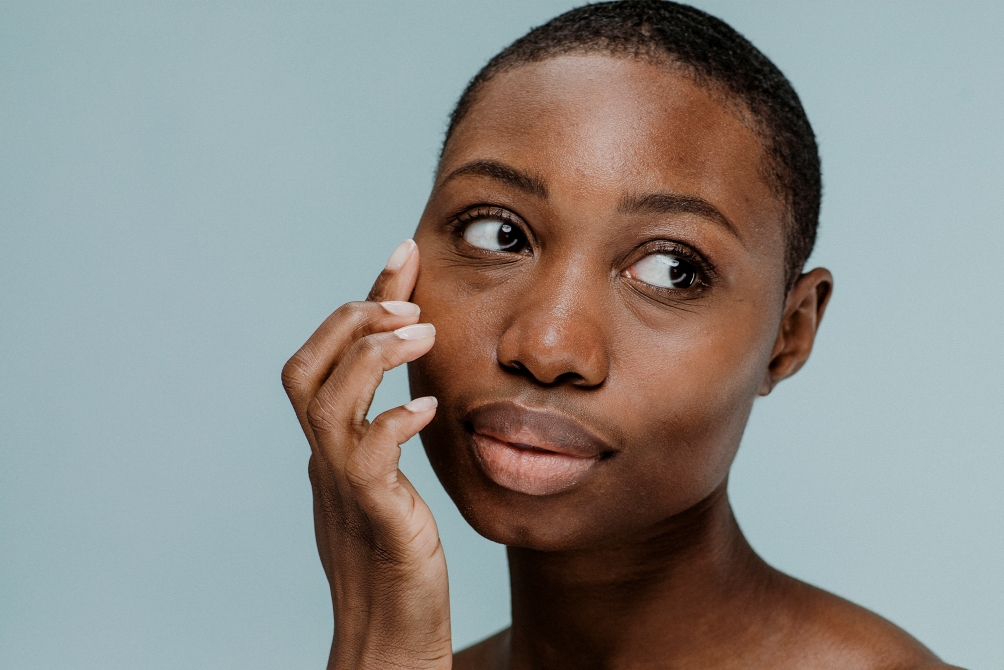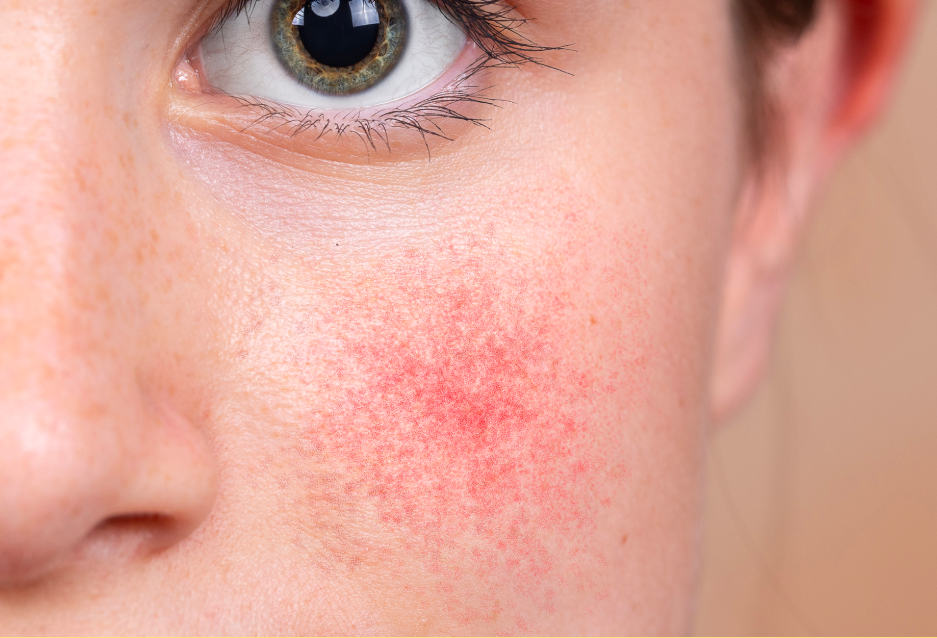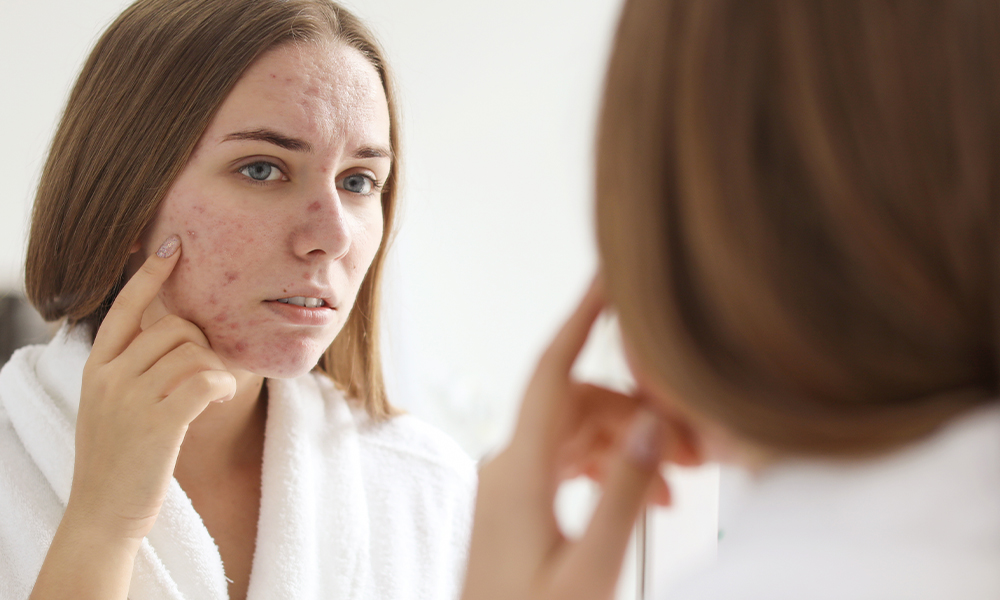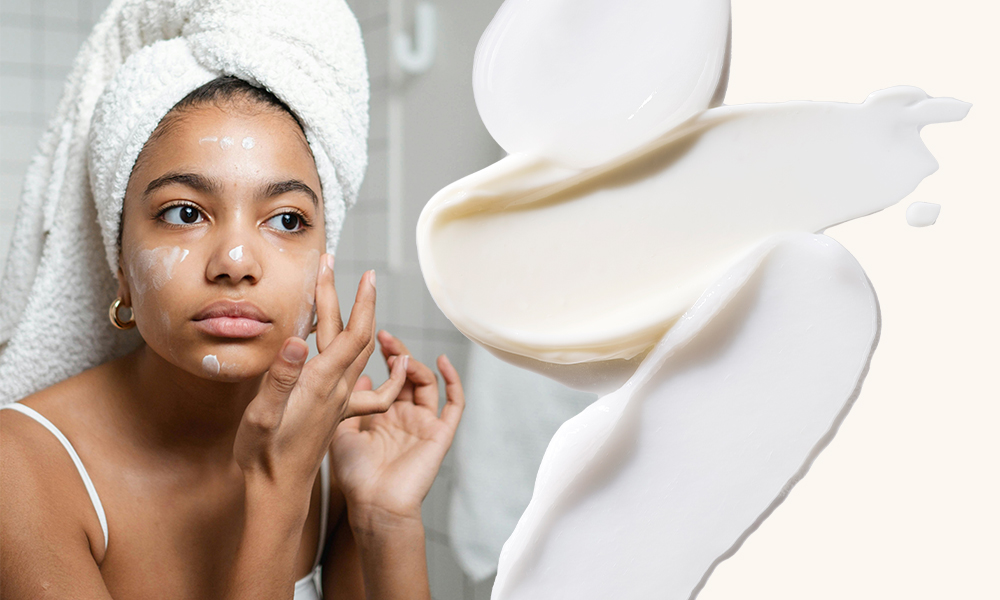Rosacea Awareness Month: Five Things to Know About Rosacea

Link to share article here:
Myth Buster: A Dermatologist’s Take On Common Acne Myths
Advice around the causes, symptoms and treatments for acne isn’t hard to find. Working out whether that spot-clearing advice is scientifically proven or just anecdotal guesswork is the challenge.
Your skin’s unique, so in the spirit of cutting through acne myths to find what really works for you, we’ve compiled a list of common beliefs about acne. Acne is common yet complex and there can be multiple factors at play – from lifestyle to life stage and more.
Shoutout to our Consultant Dermatologist, Dr Malvina Cunningham, for shining an expert light on the truth behind those myths. From downing water to shift those spots, to splashing in the sea – read on for a clearer outlook.
Acne Myths
Myth 1: Acne is the result of a poor cleansing routine.
Dermatologist’s Truth Check: Ironically, it’s often the case that people with acne over-cleanse to compensate for their spots.
Be mindful of exfoliants that can damage skin and spread infection. Cleanse as part of your routine (start with micellar water and follow with a Skin + Me Cleanser for your skin type) if you’re wearing makeup, but keep your routine gentle to protect your skin barrier and minimise redness.
Myth 2: Acne is just a fact of life
Dermatologist’s Truth Check: Acne treatments are more advanced than ever. It’s all about identifying where your symptoms are, why you’re getting them and then treating them from there. A Dermatologist consultation is invaluable.
If acne is affecting your confidence, it’s never something you have to put up with and it’s not your fault. Be compassionate with yourself. If you’re struggling here, explore Acne Support.
Myth 3: Junk food gives you spots
Dermatologist’s Truth Check: Nutrition plays an important role in healthy skin but it’s not a simple correlation between the two. If you’re experiencing adult, hormonal acne, for example, saying no to that cheeseburger isn’t going to clear your skin overnight. Topical treatment and expert support are what you need.
Nutrition plays an important role in healthy skin but it’s not a simple correlation between the two.
Myth 4: Oily skin doesn’t need moisturiser
Dermatologist’s Truth Check: If your skin feels tight then you can absolutely use moisturiser. Choose non-pore clogging options. Note that dryness and redness around inflamed spots make acne look more prominent and that the right moisturiser for your skin type can negate this. You can use it every other day if the oils in your skin feel like they’re naturally lubricating enough.
Myth 5: The sun is good for spots
Dermatologist’s Truth Check:
The sun and UV light from the sun does have an immunosuppressive effect on the skin and many find that their acne does improve in the sunshine. Sadly, this is only temporary, and acne returns after a sunny holiday. On balance, the detrimental photoageing effects of the sun and the risk of skin cancer outweigh the benefits of it being used as an acne treatment. High sun exposure may also lead to skin irritation and burning can exacerbate acne for others.
People may worry that sunscreen will block their pores. Again, choose right and protect your skin. Tanned skin is damaged skin. Don’t forget to use a high SPF factor 30+ every day.
Myth 6: Drinking water helps clear acne
Dermatologist’s Truth Check: Drinking water doesn’t help or cure acne. You need to drink adequate amounts of water to keep your body and your skin hydrated but anything over that will not have additional benefits.
If you drink less than an adequate amount, this can lead to skin that feels dry and irritated, and can worsen an inflammatory process such as acne.
Myth 7: Consuming dairy (specifically cow’s milk), sugar or alcohol causes acne
Dermatologist’s Truth Check: Dairy or sugar don’t cause acne as a general rule. There is, however, increasing evidence and mechanistic evidence that explains how certain foods can act as a trigger or exacerbates acne in certain individuals.
As usual, it isn’t a straightforward correlation. More research is needed as increasing evidence linking gut health, our immune system and the connection to our skin emerges.
A healthy diet is key to managing any inflammatory condition. The right nutrition can help improve the condition itself but may also improve your response and maintenance to any treatment.
There are some people that benefit from a reduction or exclusion of certain foods in their diets. However, there’s not enough evidence to give specific advice to an individual when many people wouldn’t get any benefit from reducing certain food groups.
If you do decide to experiment with this approach and cut out important components from your diet like dairy, then make sure you’re substituting with micronutrients like calcium appropriately.
Myth 8: Salt water (like the sea) is good for acne
Dermatologist’s Truth Check: The argument behind this idea is that salt water can have antiseptic and anti-inflammatory properties. This can be helpful and being in the sea makes you feel great.
Remember though, these effects are temporary and in fact, many people can also find that their skin appears worse because the salt water can cause irritation and dryness. Post-dip, I’d recommend a gentle cleanse and light non-pore clogging moisturiser.
Medical facts checked by Consultant Dermatologist, Dr Malvina Cunningham
New to Skin + Me? Get your first month of personalised skincare for £4.99 with promo code DOSE – complete our quick consultation here.
Looking for a routine refresh? Add the Dream Routine to your Skin + Me subscription.
In need of a restock? Head to The Skincare Shop for one-off purchases of your Routine Essentials.
New to Skin + Me? Get your first month of personalised skincare for £4.99 with promo code DOSE – complete our quick consultation here.
Looking for a routine refresh? Add the Dream Routine to your Skin + Me subscription.
In need of a restock? Head to The Skincare Shop for one-off purchases of your Routine Essentials.



